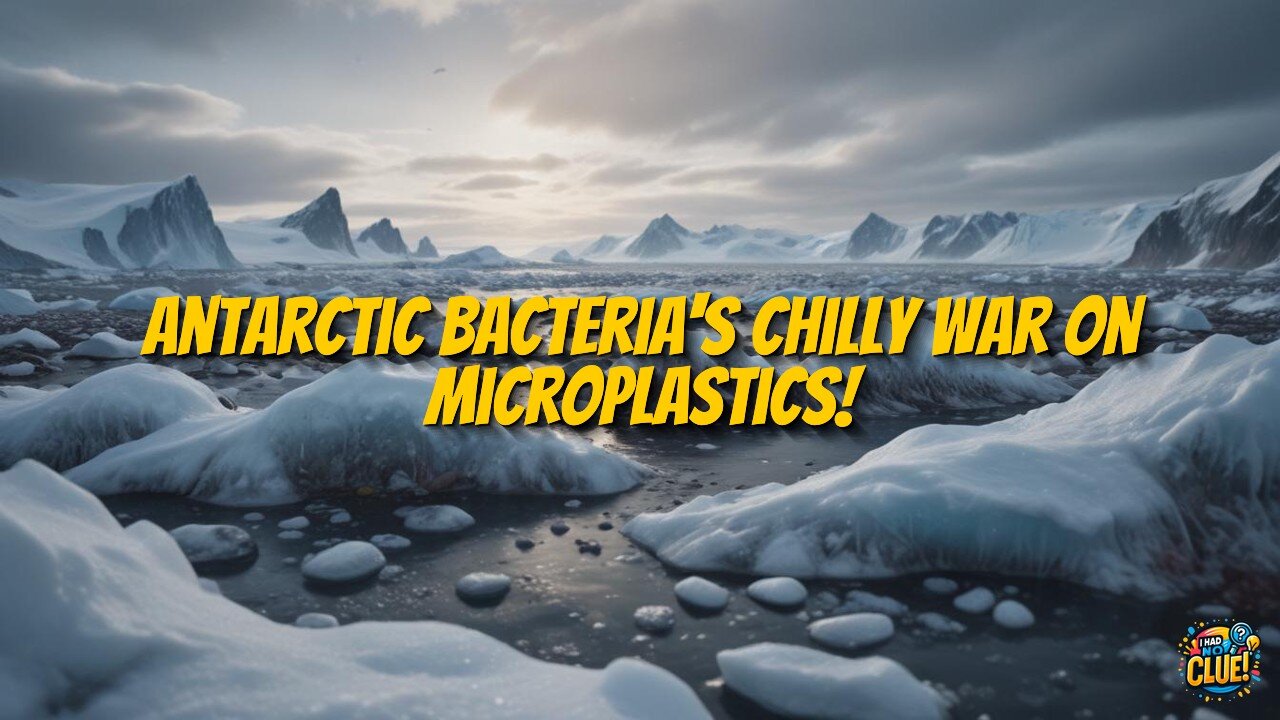Premium Only Content

Antarctic Bacteria Revolutionizes Microplastic Remediation
In March 2023, researchers from the University of Wollongong and the Chilean Antarctic Institute discovered a novel bacterium in Antarctica's McMurdo Sound, named Pseudomonas antarctica MP-1, which can degrade microplastics in frigid temperatures (1-4°C). This bacterium can reduce microplastic mass by 13% over 60 days using unique cold-active enzymes (PETase-K1 and MHETase-K2), which are far more efficient than previously known biodegradation processes at low temperatures. This accidental discovery led to the development of "CryoFilter," a biofiltration system tested in Zürich that captures up to 87% of microplastics in the 10-100 micrometer range. The system uses bacteria embedded in a specialized cryoprotectant hydrogel, remaining active for six months without replacement.
The technology addresses a critical environmental issue, as humans now ingest approximately 5 grams of microplastics weekly. While challenges remain, including throughput capacity and ecological safety concerns, the system offers unexpected economic benefits. The bacterial degradation produces valuable chemical precursors (terephthalic acid and ethylene glycol) that could offset 30% of operational costs, attracting investment from companies like BASF and Mitsubishi Chemical Holdings. With pilot implementations planned in multiple countries by 2025, this Antarctic discovery demonstrates how nature's adaptations might help solve human-created environmental problems.
-
 LIVE
LIVE
SpartakusLIVE
1 hour agoPREPARE to have your Frontal Lobe SEARED with MIND BENDING Content
152 watching -
 LIVE
LIVE
Nikko Ortiz
39 minutes agoRealistic COP Simulator | Rumble LIVE
112 watching -
 39:30
39:30
Scammer Payback
5 hours agoBefore you answer another scam call... Watch This
5993 -
 LIVE
LIVE
Edge of Wonder
5 hours ago‘Paranormal Forces Attacked My Daughter’: Laura Van Tyne Interview
149 watching -
 LIVE
LIVE
NAG Entertainment
1 hour agoSAVAGE Drummer! LIVE Requests! FOLLOW Idiot! HELP Grow This Category!
27 watching -
 LIVE
LIVE
GritsGG
9 hours ago24+ Hour Marathon Stream! Most Wins in WORLD! 3704+!
50 watching -
 LIVE
LIVE
TCDESIGNSLC
1 hour agoRumble Partner | Chief on Duty
16 watching -
 1:07:37
1:07:37
TheCrucible
4 hours agoThe Extravaganza! EP: 49 (10/07/25)
127K15 -
 1:23:41
1:23:41
Kim Iversen
3 hours agoTrump To Pardon Ghislaine Maxwell? | They Mocked It as a Horse Drug — Now It Could Cure Cancer
24.2K45 -
 29:08
29:08
Michael Franzese
2 hours agoEx-Mobster REVEALS the 15 Deadliest Killers in Organized Crime
14.4K6
